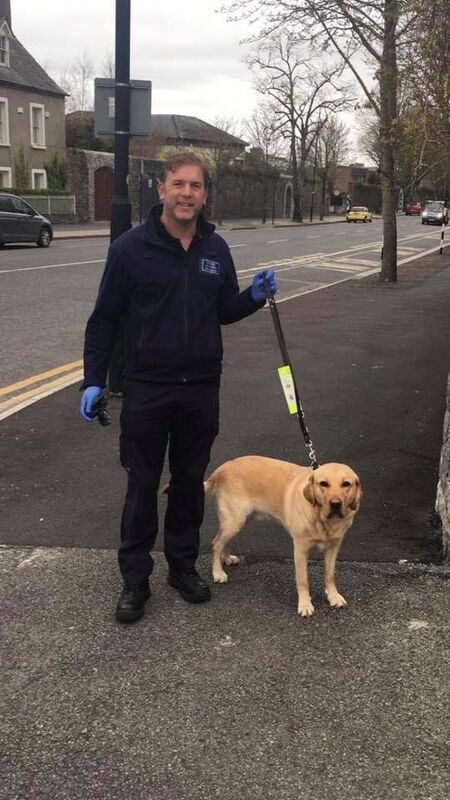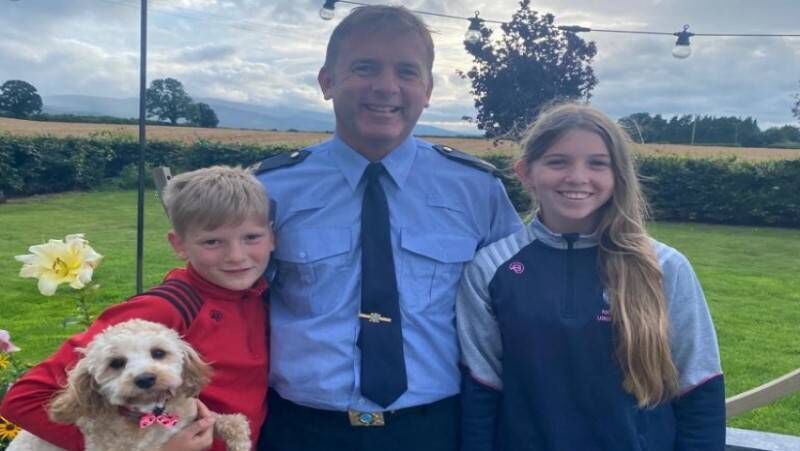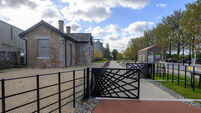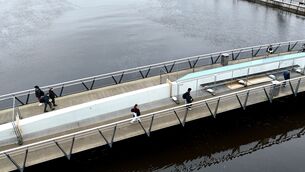'Life as a Garda involves so much tragedy, but it’s worth it to know we help so many people'

Garda Tadhg Mohally gets to work in the Scenes of Crime Unit.
Tadhg Mohally has over twenty years’ experience in An Garda Síochána, and the job has taken him all over the country and provided him with a huge variety of opportunities within that time.
Originally from Ballyvolane, Tadhg left the area in the mid-90s for a fleeting attempt at an accounting degree, but quickly realised it wasn’t for him.
Spurred on by a friend who had applied to the force, Tadhg decided to drop out of university to join the Gardaí alongside him, and so had his first day in Templemore College on July 27 1998.
In the twenty-three years that have followed, Tadhg’s never regretted that decision once. The gainful employment he’s earned from the manoeuvre began right after graduating from Templemore, when he was stationed in Howth Garda Station.
Tadhg spent the next five years there, before transferring to Kilkenny in 2004.
It was in Kilkenny Garda Station that Tadhg really began exploring all the opportunities that a career in the Gardaí can offer. During his seventeen years there, he initially found success in community policing and later as a family liaison officer – an emotionally fraught job, but one he took great pride in.
“Being a family liaison officer basically means you’re the key link between a victim’s family and the guards,” Tadhg explains.
This desire to help the victims of crime, or to get their families some answers, would come to the forefront during Tadhg’s next venture with An Garda Síochána. In 2012, a rare opening became available in the Scenes of Crime Unit and Tadhg decided it was time to try something totally new.
“I’d had no forensics experience before I joined the Scenes of Crime Unit,” he admits. “The standard they trained us all to was just unbelievable. I became alert so quickly to all the ways that a scene I was investigating could eventually help us secure a conviction in court. We covered all possibilities in our training, from obvious things like finding a fingerprint, to how do you pull that same print when it’s in blood? Or there are some trickier tasks, like a lot of people probably don’t realise that there’s skill involved in taking prints from objects like windows. It’s definitely not like you see in the movies, where you shine a special torch and all your evidence just magically lights up!”
Tadhg went on to spend nine years with the Scenes of Crime Unit, and in that time he came across all kinds of cases – some that have haunted him more than others. From home break-ins, right through the spectrum to sexual assault or murder scenes, Tadhg has seen it all.
“There’s definitely been some really difficult scenes I’ve had to attend,” he sighs. “But I’ve learnt a lot from them, and you get better at coping after each of those experiences. I learnt from a fatal road traffic accident I responded to years ago that it’s so important to talk to somebody after it, and now it’s one of the first things I do once I come off cases like that. I’ll either talk it out during the drive back with the other Gardaí who were on the scene with me, or I’ll arrange for us to pick up the phone in a few days’ time and check in on each other.

“I know of other sections in An Garda Síochána where they handle absolutely horrific cases daily, let’s say departments that deal with children who have been abused. I know I wouldn’t be able to do their job, but they always say that they enjoy their work because it means they can come away knowing they’ve helped and protected that child by investigating the crimes committed against them. So you have to look at the positives, that’s the only way to get through it.
"I think that’s what guards do, first and foremost, is they’re out there to help people. So if it means going through a bit of hardship ourselves to get a good result for somebody at the other end of it, it is worth it.”
Among the other factors that make a career in the Gardaí worth those hardships is the work-life balance that all members are encouraged to have. Family man Tadhg left Kilkenny last year and is now working in the garda station in Thurles, after moving there with his wife and kids. As much as he loves his job, it’s always been important to him that family comes first.
“It’s another reason why I’d really encourage people to go for a career in the Gardaí, is because you can find ways to fit it around the rest of your life,” he advises. “When my kids were still young, I worked a shift pattern of four days on and four days off. The days ‘on’ were long, twelve-hour shifts but then the other 50% of my time was free to spend with my family. So while I usually missed out on weekends with them, I could be off work from Monday right through to Friday morning, getting them to and from school and all of that. I’ve had a wonderful career but I never had to miss out on watching my children grow up because of it”.

If any of his family wanted to become a Garda tomorrow, Tadhg would be overjoyed. Such is his love for the job.
“I’ve been with An Garda Síochána for almost twenty-three years now, and I’ve not looked back once,” he beams. “I’ll certainly see myself out with them. It offers you a huge variety - I think the life experiences I’ve gotten from my work, compared to some of my peers that I grew up with, is just extraordinary. Say tomorrow, I could go into work at seven in the morning and I’ll have no idea what I might have faced by the time I head home that evening. I don’t think I’ll ever get sick of that, the not knowing what’s next.”
If you share Tadhg’s sense of adventure, and think a career in An Garda Síochána may be for you, then be sure to get your application in by Wednesday, March 16.
For further information on how to apply, head to www.recruitireland.com
Visit: https://tinyurl.com/mt4njdjd







 App?
App?


